第5章
Let us consider what we call vicious luxury. No gratification, however sensual, can of itself be esteemed vicious. A gratification is only vicious, when it engrosses all a man's expence, and leaves no ability for such acts of duty and generosity as are required by his situation and fortune. Suppose, that he correct the vice, and employ part of his expence in the education of his children, in the support of his friends, and in relieving the poor; would any prejudice result to society? On the contrary, the same consumption would arise; and that labour, which, at present, is employed only in producing a slender gratification to one man, would relieve the necessitous, and bestow satisfaction on hundreds. The same care and toil that raise a dish of peas at CHRISTMAS, would give bread to a whole family during six months. To say, that, without a vicious luxury, the labour would not have been employed at all, is only to say, that there is some other defect in human nature, such as indolence, selfishness, inattention to others, for which luxury, in some measure, provides a remedy; as one poison may be an antidote to another. But virtue, like wholesome food, is better than poisons, however corrected.
Suppose the same number of men, that are at present in GREATBRITAIN, with the same soil and climate; I ask, is it not possible for them to be happier, by the most perfect way of life that can be imagined, and by the greatest reformation that Omnipotence itself could work in their temper and disposition? To assert, that they cannot, appears evidently ridiculous. As the land is able to maintain more than all its present inhabitants, they could never, in such a UTOPIAN state, feel any other ills than those which arise from bodily sickness; and these are not the half of human miseries. All other ills spring from some vice, either in ourselves or others; and even many of our diseases proceed from the same origin. Remove the vices, and the ills follow. You must only take care to remove all the vices. If you remove part, you may render the matter worse. By banishing vicious luxury, without curing sloth and an indifference to others, you only diminish industry in the state, and add nothing to men's charity or their generosity. Let us, therefore, rest contented with asserting, that two opposite vices in a state may be more advantageous than either of them alone; but let us never pronounce vice in itself advantageous. Is it not very inconsistent for an author to assert in one page, that moral distinctions are inventions of politicians for public interest;and in the next page maintain, that vice is advantageous to the public? And indeed it seems upon any system of morality, little less than a contradiction in terms, to talk of a vice, which is in general beneficial to society.
I thought this reasoning necessary, in order to give some light to a philosophical question, which has been much disputed in ENGLAND. I call it a philosophical question, not a political one. For whatever may be the consequence of such a miraculous transformation of mankind, as would endow them with every species of virtue, and free them from every species of vice; this concerns not the magistrate, who aims only at possibilities. He cannot cure every vice by substituting a virtue in its place.
Very often he can only cure one vice by another; and in that case, he ought to prefer what is least pernicious to society.
Luxury, when excessive, is the source of many ills; but is in general preferable to sloth and idleness, which would commonly succeed in its place, and are more hurtful both to private persons and to the public. When sloth reigns, a mean uncultivated way of life prevails amongst individuals, without society, without enjoyment. And if the sovereign, in such a situation, demands the service of his subjects, the labour of the state suffices only to furnish the necessaries of life to the labourers, and can afford nothing to those who are employed in the public service.
The End